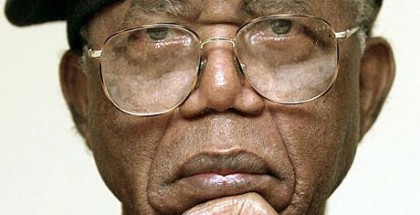Why networking feels so ‘icky’
Givers of career advice constantly remind ambitious professionals that networking is essential to advancing a career.
But cultivating the acquaintance of influential or knowledgeable people in the hope that they can help boost you up the ladder of success can feel “icky.”
You’re not the only one who finds the process of ingratiating oneself to potentially useful strangers slimy and distasteful.
In an article entitled “The Contaminating Effects of Building Instrumental Ties: How Networking Can Make Us Feel Dirty,” published last month in Administrative Science Quarterly, Tiziana Casciaro of the University of Toronto (UT) in Canada; Francesca Gino of the Harvard Business School; and Maryam Kouchaki of Northwestern University in Evanston, Illinois, explore the emotional effects of purposely seeking contact with people in order to gain career benefits, which they term “instrumental networking in pursuit of professional goals.”
They explain that “unlike networking in pursuit of personal goals and unlike networking that emerges spontaneously, instrumental networking for professional goals can impinge on an individual’s moral purity—a psychological state that results from a person’s view of the self as clean from a moral standpoint and through which a person feels virtuous—and thus make him feel dirty.”
So, the desire to take a shower that often follows a round of befriending important individuals for career-related gain isn’t something you just imagined, these three social scientists assure us.
Rather, it reflects the moral discomfort that comes from knowing we are using (or attempting to use) others for selfish ends. “people feel that they cannot justify their actions to themselves, and the lack of justification comes from the difficulty people have in framing some forms of networking as motivated by a concern for other people versus a selfish concern,” Casciaro explains in a UT release.
Their discomfort may be justified, but, the researchers add, networking’s ickiness discourages people from taking part, and their failure to seek out connections can impede career advancement. The yuck factor, furthermore, does not strike randomly. Rather, the researchers found from behavioral studies, it tends to impact those who most need to develop their networks. “[T]he greater the power that people have when they engage in instrumental networking, the less dirty such networking can make them feel,” the researchers write in the article.
They add that “ the powerful are more likely to reciprocate help, favors or support, and their networking tends to yield more balanced relationships, with the powerful potentially giving as much or more than they take from others.
The greater capacity for reciprocated and balanced exchanges should make the power-advantaged feel less dirty about instrumental networking.” Anyway, “power makes people feel self-sufficient, free from dependency, and capable of achieving personal goals without aid from others.”
Consequently, “the powerful will not feel as dirty as the powerless when they approach others because, in their minds, others are not as instrumental to their goal,” the researchers write.
The bottom line: The people who have the most to gain from networking are the ones likeliest to feel worst about doing it.
To overcome such moral qualms, it helps to see networking as something other than naked self-promotion—by, for example, viewing it as a source of knowledge that can also benefit co-workers, Casciaro suggests in the release.
Also useful is realizing that such relationships need not be inherently one-sided, because others could benefit from knowing you, she adds. “Don’t underestimate what you can give,” Casciaro says in the release.
Culled from Science Journal – Careers Supplement 4 November 2014 |
By Beryl Lieff Benderly



















